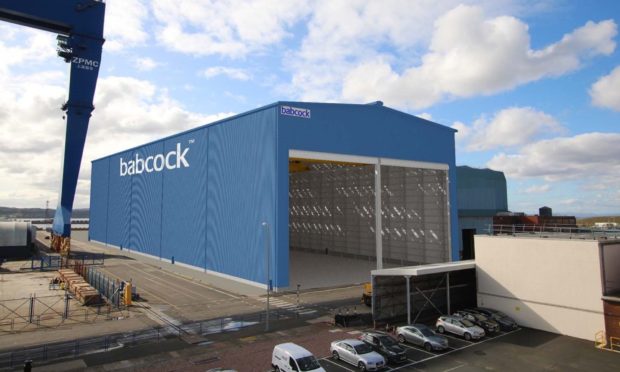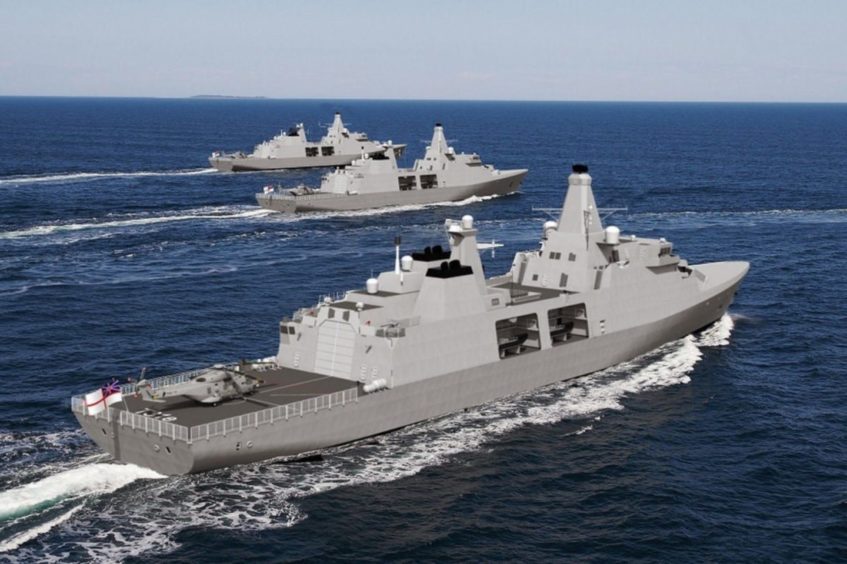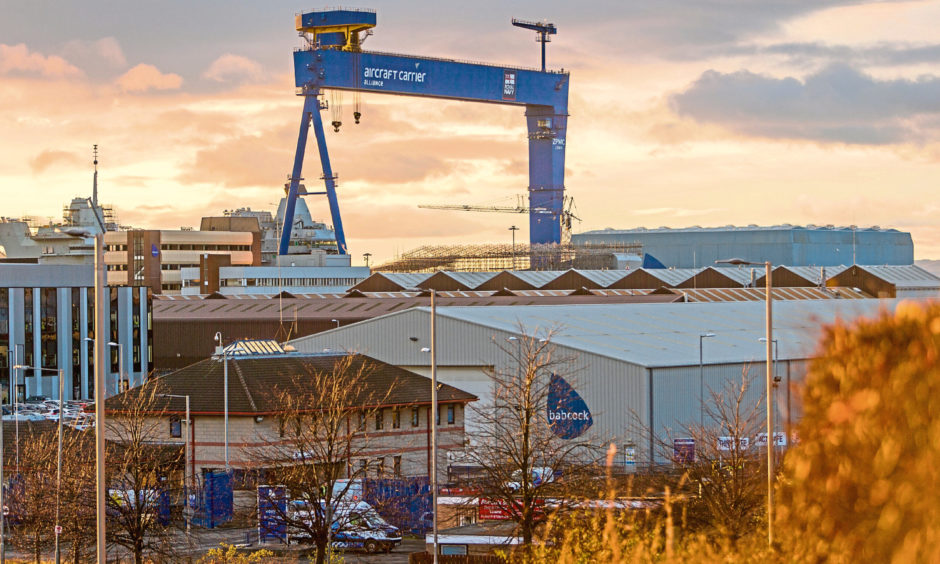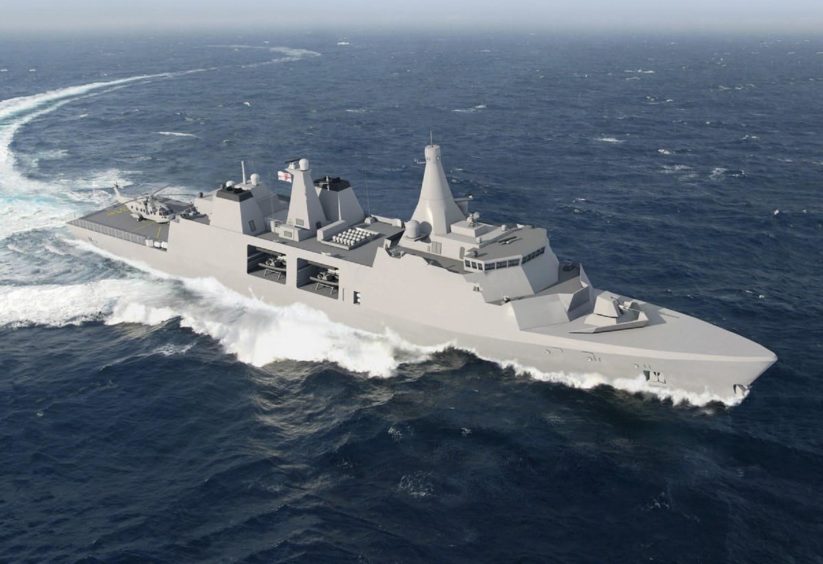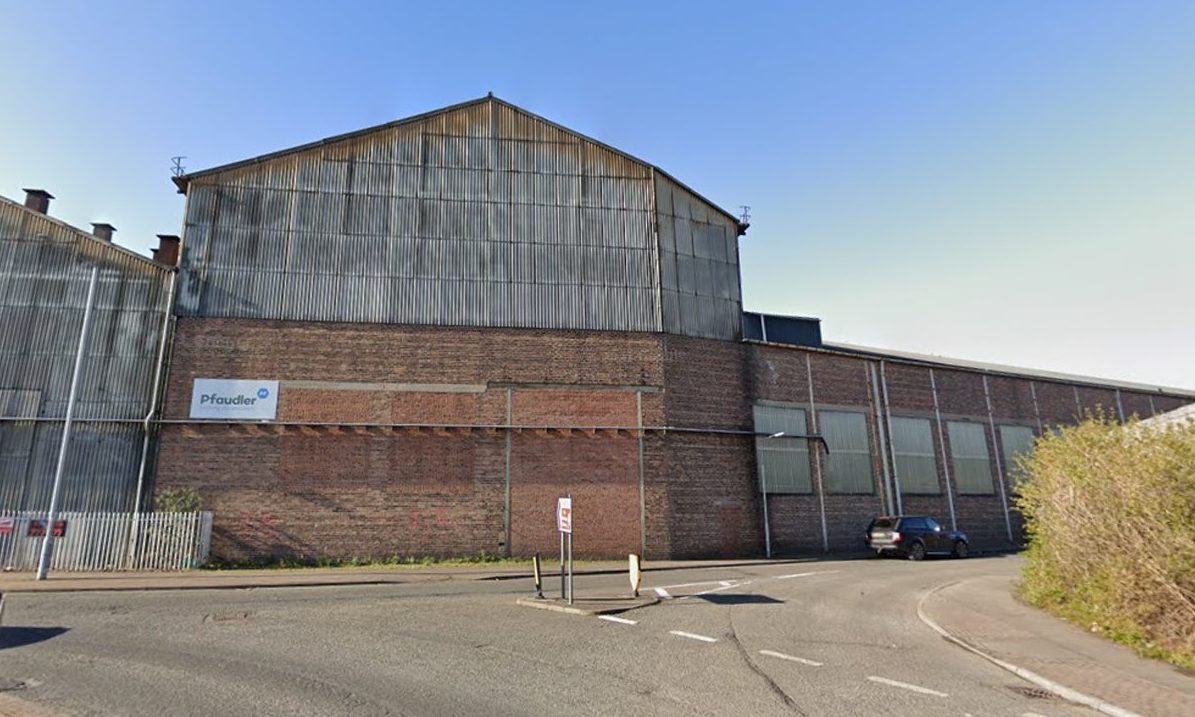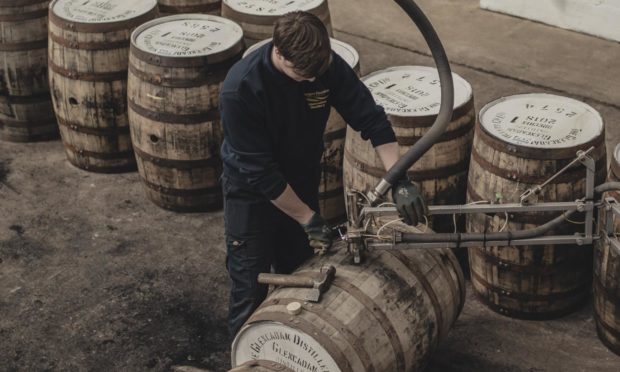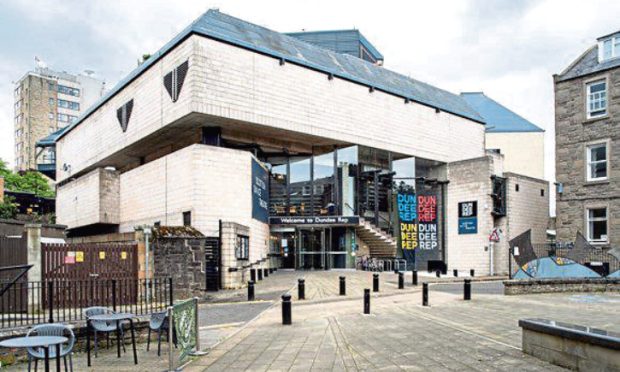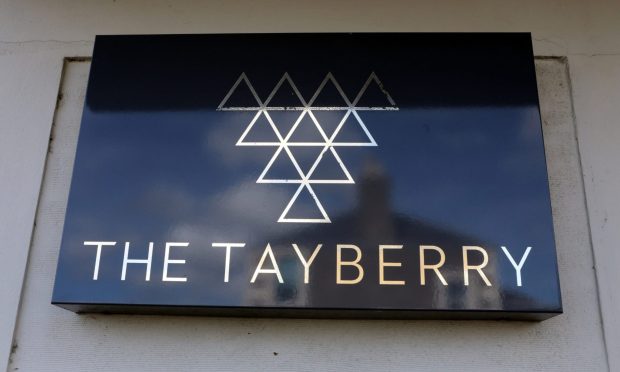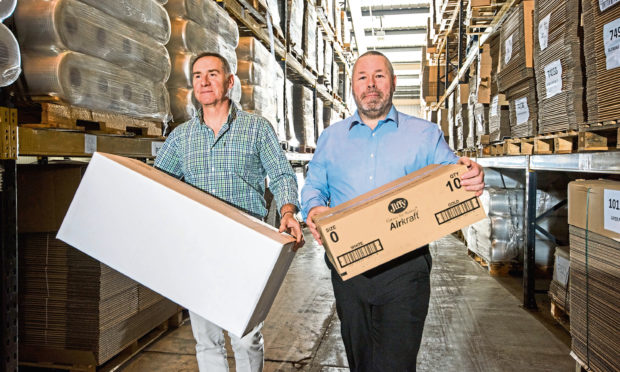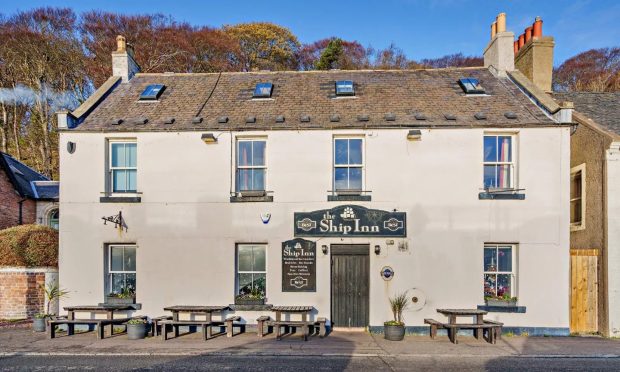Profits at Fife-based engineering firm Babcock fell by almost £100 million in the first six months of the year.
The firm cited Covid-19 and weakness in the civil aviation sector among the reasons for the decline.
Babcock’s Rosyth base is one of the largest waterside manufacturing and repair facilities in the UK and has been awarded a £1.25 billion contract to build five warships for the Royal Navy.
Results for the half year ending September 30 showed income of £2.11bn compared to £2.19bn for the same period last year. Operating profits fell from £168.7m last year to £76.2m.
Critical services
Recently appointed chief executive David Lockwood said: “I have been enormously impressed by the way in which our people have adapted to the Covid-19 pandemic and continued to prioritise meeting the needs of our customers.
“Nevertheless, while demand for our critical services has remained resilient overall, the additional costs incurred and inefficiencies created have impacted our profitability.
“Our operating profit performance in the first half reflects this Covid-19 impact as well as disposals, the impact of government insourcing of Magnox and Dounreay, and weak trading in civil aviation.”
Oil and gas aviation
Babcock said its oil and gas aviation division was hit by significantly lower flying hours during the period due to Covid-19.
The oil and gas business also missed out on some contracts in the last financial year, denting its figures.
Despite the fall in revenues and profits, Babcock reported its order book had increased, from £16.9bn to £17.2bn.
“In my first three months at Babcock I have spent time seeing many parts of the business,” Mr Lockwood added.
“Our strengths are clear. We have many high-quality businesses, with a deep understanding of our customers, operating in markets where demand for our expertise is strong.
“At the same time, there are areas that need to be addressed if we are to achieve our full potential. The most important aspect will be delivering sustainable free cash flow.
“In the coming months, we will be reviewing our strategic priorities, execution and delivery.”
Type 31 warships
Around 400 people have been working on the programme, but that number is expected to rise to 1,250 direct roles at the height of the building work while a further 1,250 additional supply chain jobs will also be created or supported.
The first steel could be cut on site within a year, as a brand new assembly hall at Rosyth – capable of hosting two Type 31 frigates under cover side-by-side – should be handed over late summer 2021.
